Environment
Governance
In order to both realize a sustainable society and increase corporate value through corporate activities that take the environment, society and the economy into consideration, in July 2022 the MDV Group established the Sustainability Promotion Committee under the Board of Directors. This committee meets once every quarter and is chaired by the President, who takes ultimate responsibility for ESG-related matters, and is comprised of full-time Corporate Auditors, the general managers of each business division and section chiefs. The committee plans and formulates projects, strategies and measures related to the Group’s sustainability promotion activities; monitors their progress and evaluates achievement levels. As for climate change-related issues, we have established the Subcommittee for Environmental Consideration and Achievement of a Sustainable Society, chaired by the General Manager of the Corporate Planning Division, under the Sustainability Promotion Committee. It formulates environment-related activity policies and measures that serve as Group-wide themes, and conducts monitoring. The committees report their activities to the Board of Directors once every quarter, and the Board of Directors consults and provides direction on the content of the reports.
System for Addressing Climate Change
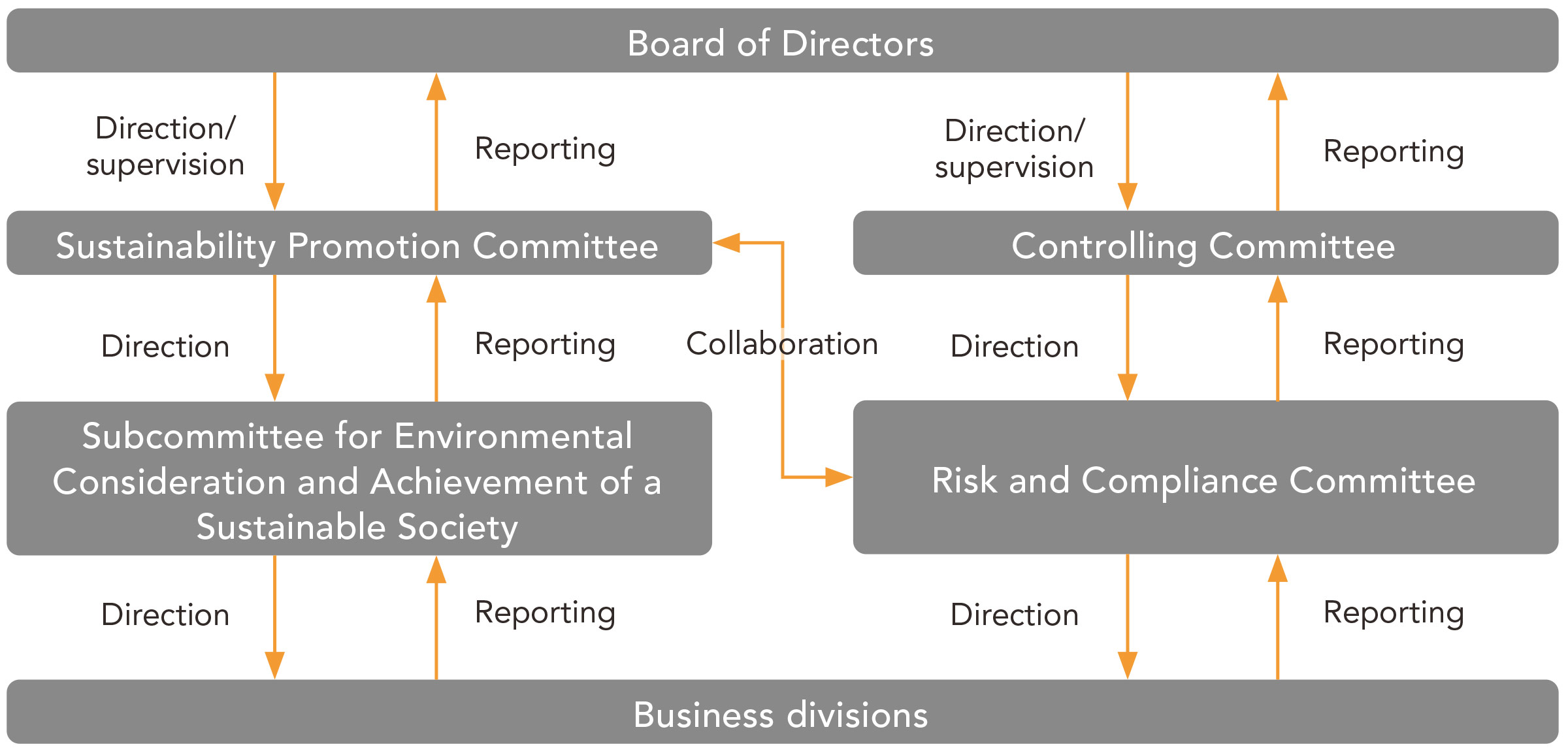
Risk Management
1) Process for identifying and assessing climate change-related risks
MDV has established the Controlling Committee Regulations, as well as the Controlling Committee (chaired by a representative director) itself, to put a management system in place that protects against, identifies, rectifies and prevents recurrence of risks that may occur during our business operations, and addresses any risks that materialize. In relation to risks associated with climate change, the Sustainability Promotion Committee identifies and evaluates short-term risks in addition to medium- and long-term risks, with particularly important risks reported to the Board of Directors as necessary as part of the system.
2) Process for managing climate change-related risks
Once the Sustainability Promotion Committee has identified and evaluated climate change-related risks, it decides on preventive measures and action policies to reduce risk levels. The Controlling Committee manages other Group-wide risks. After risks are reported to the Board of Directors, the board passes responsibility for countermeasures on to the committee so that they can be implemented by the relevant body. In addition, as shown in the following diagram, the importance level of risks to be addressed is determined by evaluating each risk on a five-grade ranking system for both degree of impact and frequency of occurrence, and placing each risk into one of four classifications as an overall assessment of its importance.
3) Process for integrating Group-wide risk management
The Controlling Committee generally meets once every quarter to evaluate the response to risks targeted by MDV’s risk management initiatives. MDV manages climate change-related risks using the same process as that used for Group-wide risks, through collaboration between the Sustainability Promotion Committee and the Risk and Compliance Committee, creating an integrated risk management system.
Process for determining importance of risks
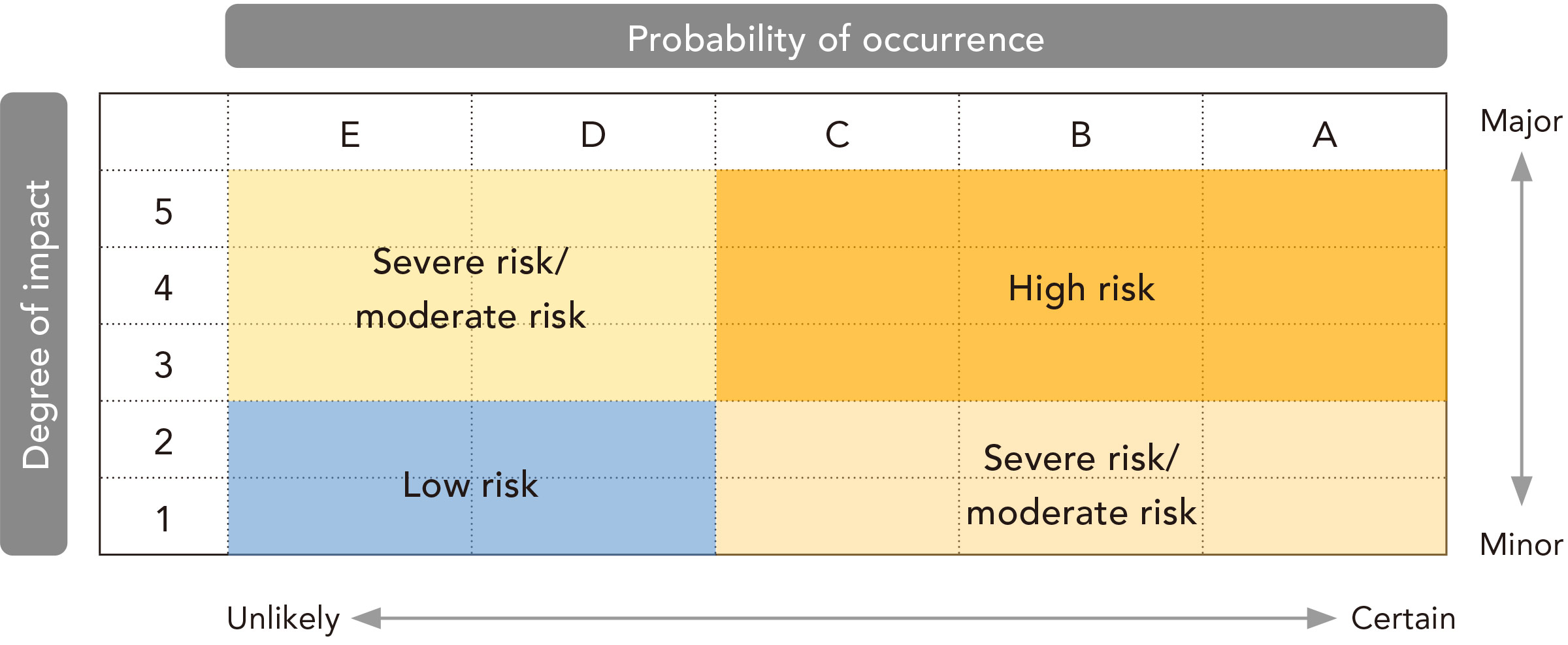
Strategy
Based on climate change scenarios, the MDV Group has identified the following as major risks and opportunities affecting the Group’s business. These identified risks and opportunities are evaluated both qualitatively and quantitatively through scenario analysis to formulate response measures. The scenarios used for evaluation include the IEA Net Zero Emissions scenario as the 1.5℃scenario and the IPCC SSP5-8.5 scenario as the 4℃scenario.
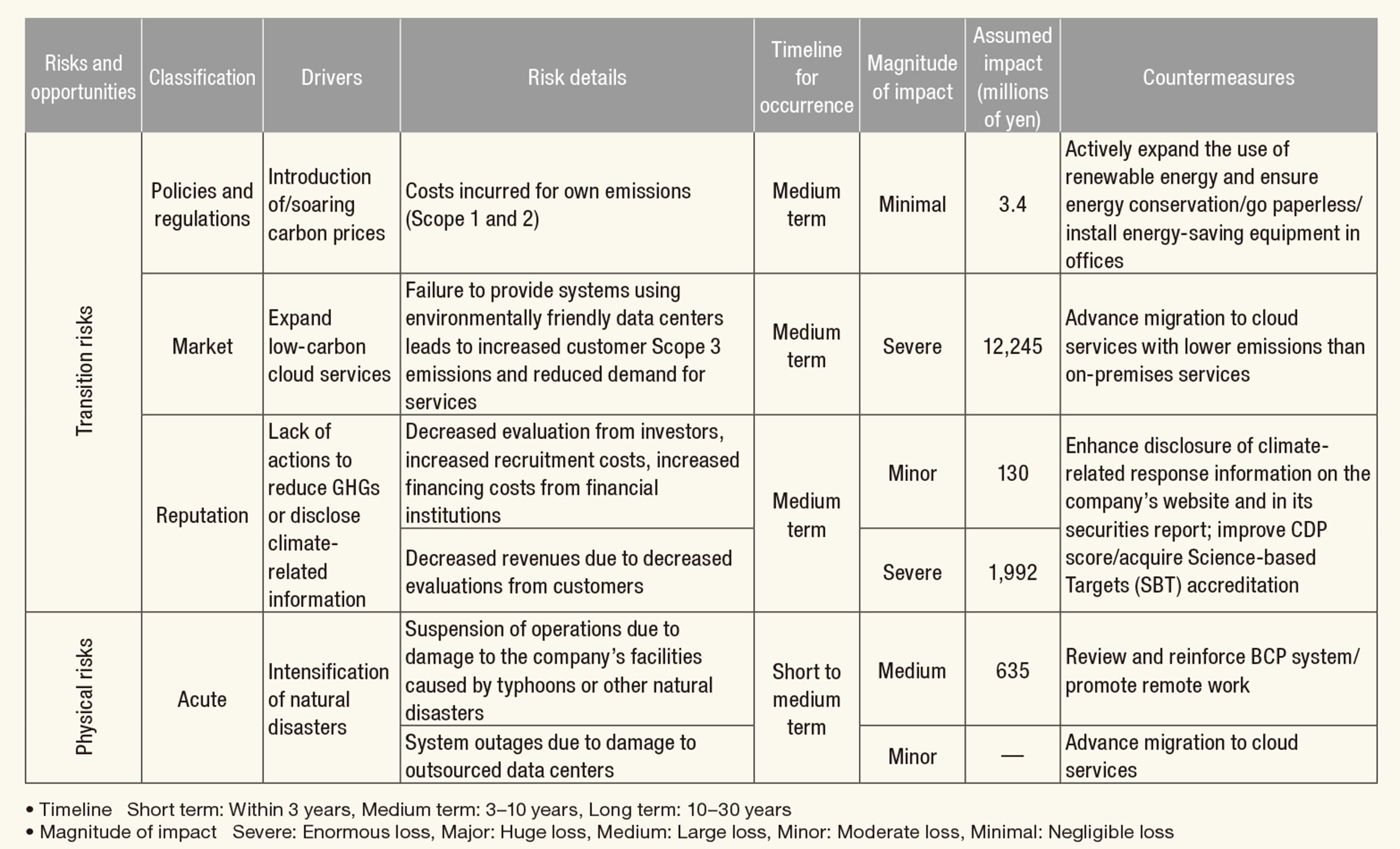
Enlargeable image will open in a new window
Indicators and Targets
To evaluate and manage the impact of climate related issues on our business, we have been calculating greenhouse gas (GHG) emissions (Scopes 1, 2, and 3) based on the GHG Protocol standards since fiscal 2022. For the MDV Group, we have set ambitious reduction targets: by fiscal 2030, we aim to reduce Scope 1 and Scope 2 emissions by more than 42% and Scope 3 emissions by more than 25% compared with the baseline emissions of fiscal 2023.
These targets were certified as SBT 1.5℃ by the international Science Based Targets initiative (SBTi) in March 2025. To achieve these near-term targets, we will promote various reduction activities, such as the adoption of renewable energy and thorough energy conservation measures.
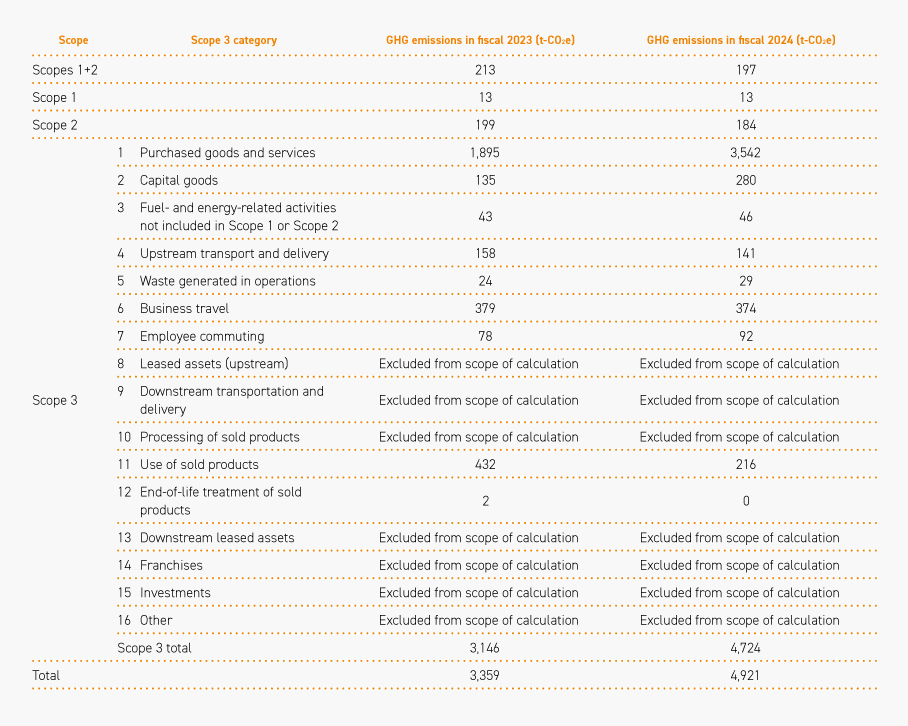
Enlargeable image will open in a new window
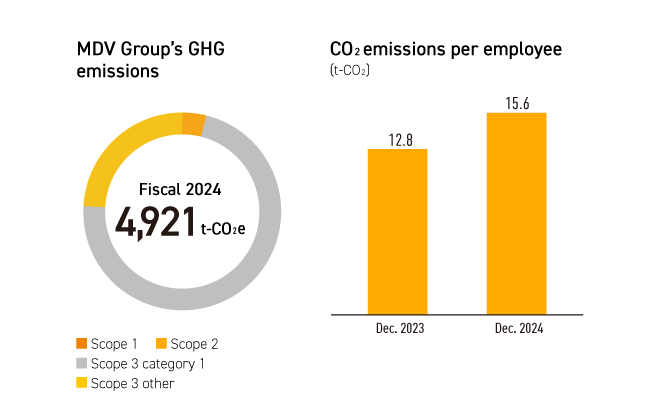
The scope of calculation is as follows.
Scopes 1, 2, and 3: Medical Data Vision Co., Ltd., CADA Co., Ltd., MDV New Connect Co., Ltd., and Doctorbook Inc.;* calculated based on the Guidelines for Calculating Greenhouse Gas Emissions of Organizations through Supply Chains of the Ministry of the Environment and the Ministry of Economy, Trade and Industry in Japan. Emissions not included in the above categories are calculated based on the assumption that there is no emission source or they are included as Scopes 1 or 2.
Scope 2 emissions are calculated based on market standards and using the Ministry of the Environment’s GHG emissions accounting, reporting, and disclosure system (ver. 5.0) and internal conversion coefficients.
For specific calculation standards regarding Scope 3 emissions, please refer to the “Environment” section of our corporate website indicated on the left.
* System Be-Alpha Co., Ltd., merged into the Company on July 1, 2024
Independent Practitioner’s Assurance Report
We have received third-party verification for our GHG emissions data (Scopes 1, 2, and 3) for fiscal 2024.
